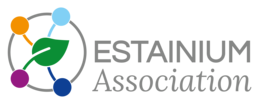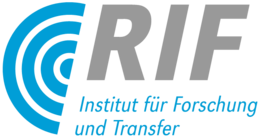ESTAINIUM
Open association of industry, research, carbon sink operators and software operators creating an ecosystem to address the current and future challenges of product-related decarbonization. (Project processing ist carried out by RIF e.V., Production Systems Department)
Problem
Climate change is driving global warming at an ever faster pace. This will cause great damage to our Planet in the long term. Industrial supply chains, which are essential to our global economy and our everyday lives, are also contributing to this process. Decarbonization in production is crucial to reducing CO₂ emissions and thus counteracting climate change. At the same time, it strengthens the competitiveness of companies that increasingly have to rely on sustainable production methods in order to meet regulatory requirements and stakeholder expectations.
The decarbonization of products refers to the reduction of greenhouse gases in production and supply chains. Companies and industry face considerable uncertainties when decarbonizing their products and production, such as unclear regulatory requirements, fluctuating costs for green technologies and the challenge of making long-term investments in a rapidly changing market environment. Added to this are uncertainties regarding the availability of renewable energies and changes in the supply chain.
Objective
Climate change is driving global warming at an ever faster pace. This will cause great damage to our Planet in the long term. Industrial supply chains, which are essential to our global economy and our everyday lives, are also contributing to this process. Decarbonization in production is crucial to reducing CO₂ emissions and thus counteracting climate change. At the same time, it strengthens the competitiveness of companies that increasingly have to rely on sustainable production methods in order to meet regulatory requirements and stakeholder expectations.
The decarbonization of products refers to the reduction of greenhouse gases in production and supply chains. Companies and industry face considerable uncertainties when decarbonizing their products and production, such as unclear regulatory requirements, fluctuating costs for green technologies and the challenge of making long-term investments in a rapidly changing market environment. Added to this are uncertainties regarding the availability of renewable energies and changes in the supply chain.
Approach
The network is designed for long-term cooperation between stakeholders and is based on membership. In order to achieve its objectives, ESTAINIUM is now structured into four working groups with different objectives:
- Working group 1 deals with the technical infrastructure for the data exchange of product carbon footprints
- Working group 2 deals with the development of standards and norms for ensuring correct carbon accounting.
- Working Group 3 focuses on the development of guidelines for the integration of high-quality carbon offsetting projects and the management of product lifecycles related to carbon sequestration
- Working group 4 is the youngest of the working groups and deals with the legal hurdles and regulations in the area of carbon accounting


![[Translate to English:] [Translate to English:]](/storages/zentraler_bilderpool/_processed_/2/6/csm_Altes_Maschinenbau-Gebaeude_3a1a87015a.jpg)

